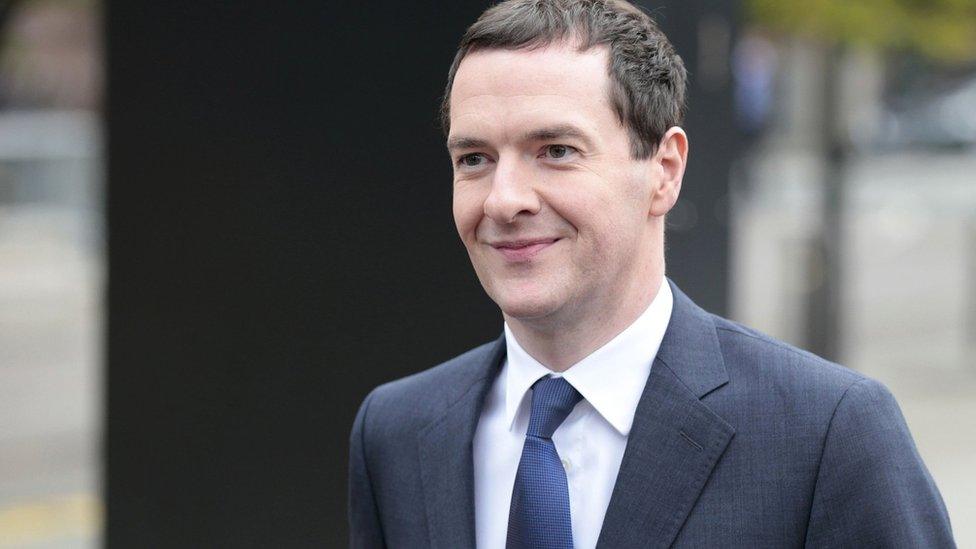Tax credits: A high-stakes battle
- Published

This is not just a row between the opposition parties and the government about George Osborne's plan to cut the benefits paid to millions of working parents. This debate has become a proxy for a whole list of different politicians' motivations, so here goes.
1. George Osborne is determined to try at this early stage of the Parliament, to stick to the spending targets he has set himself. The Treasury claims to be listening to its critics, but sources are adamant there will be no shifting on the policy itself - the actual cause of the criticism. One cabinet minister told me "there is no way round this". If Osborne shifts, whether slowing the introduction of the changes or tweaking the numbers, the savings he wants will emerge more slowly, and he's more likely to break his own fiscal rules.
2. The chancellor is not afraid of a bit of short-term unpopularity, and it is impossible to imagine anything as drastic as the policy being dropped - a real U-turn. But as we've been reporting for some weeks, it is likely there will be other policies put forward by Osborne in the coming weeks that will help ease the pain for some of those affected - such as a faster rise in the level when workers start paying income tax perhaps, or repetitions of the fuel duty or the council tax freeze.
3. The Labour Party wants to force the government to back down, but the new leadership isn't quite sure how to go about it. Jeremy Corbyn has raised the issue of tax credits at Prime Minister's Questions in the last few weeks. And the Shadow Chancellor, John McDonnell, offered to back Osborne if he changes his mind. But arguably, it is elsewhere that the really effective criticism has come. One senior Labour MP suggested "we should be killing them on this, but we have no credibility".
4. By contrast, Osborne's main current rival for the Conservative leadership, Boris Johnson, has no hesitation in trying to damage the chancellor's reputation. Johnson knew exactly what he was doing when he raised the tax credit issue repeatedly before and after the Tory conference, and to an extent he has succeeded, using this issue to puncture some of the inevitability about Osborne's primacy, planting questions in Tory backbenchers' minds about the chancellor's judgement.
5. The Conservative class of 2015, MPs elected in May for the first time, may be less pliant than their predecessors. Some of the strongest resistance to the policy has come from the party's newest MPs.
6. The House of Lords is developing a taste for defeating MPs. We may not truly be on the verge of a constitutional 'crisis', but there is no question that the red benches are already proving a source of significant opposition to the government's plans, defeating them on many votes already. They are willing to make trouble, even like today, using a little-known procedure to have an impact.
7. The new Liberal Democrat leader, Tim Farron, believes this is the way for his party to show it still matters is in the House of Lords. That's why not just one, but three so-called 'fatal motions' that would kill off new laws the government wants to make have been put forward by his party in just one week. There are nerves inside his party about how sustainable, how wise this is as a tactic. But it is where the Lib Dems feel they can make an impact, having been shredded in the Commons.
Many families may not yet even be aware of how the changes will affect their income. The letters millions will receive spelling out the levels of the cuts are yet to be sent. But politically there is already a lot at stake, not just for George Osborne.
- Published6 October 2015

- Published1 July 2015
